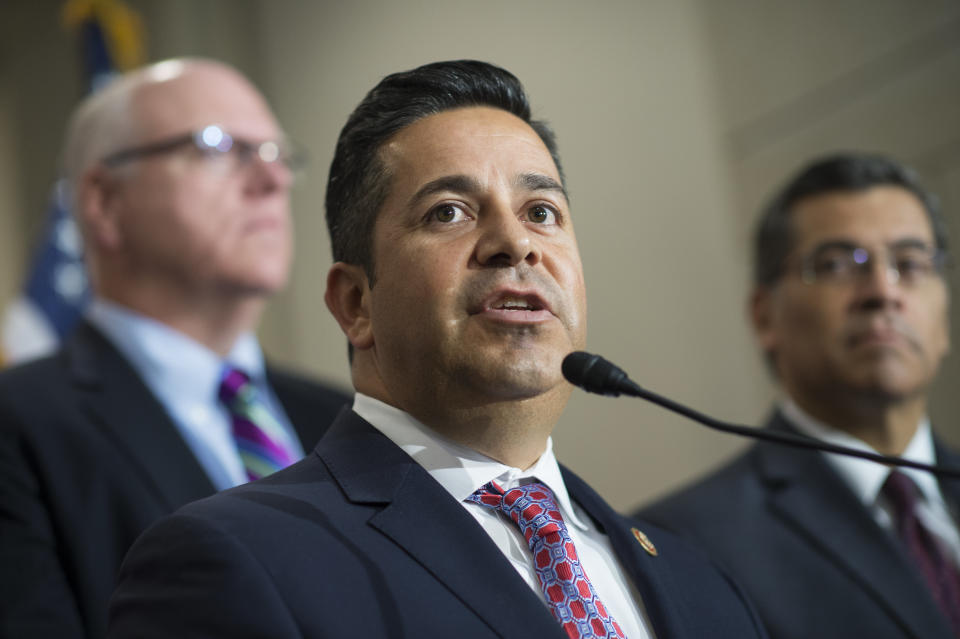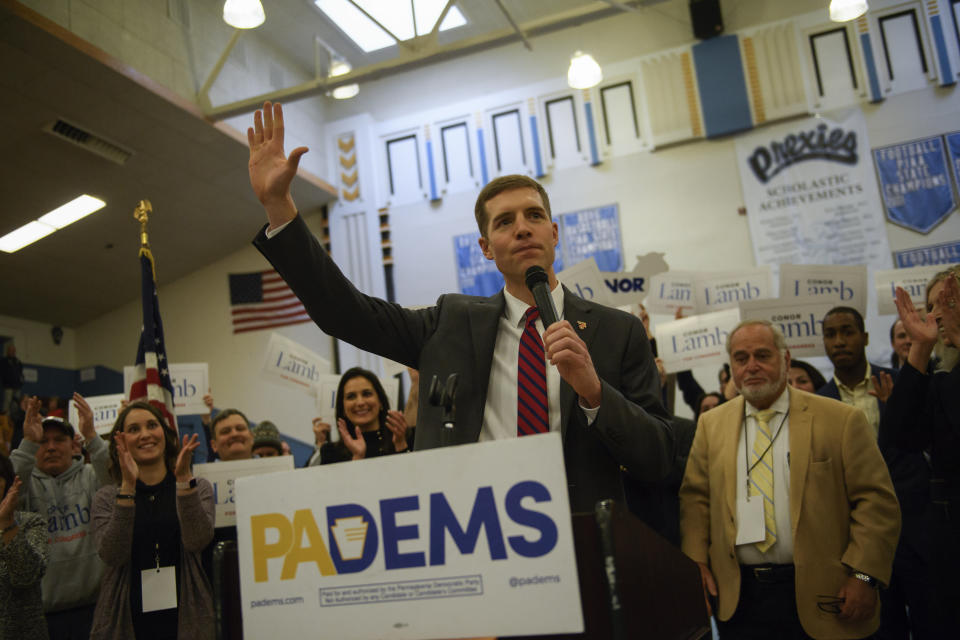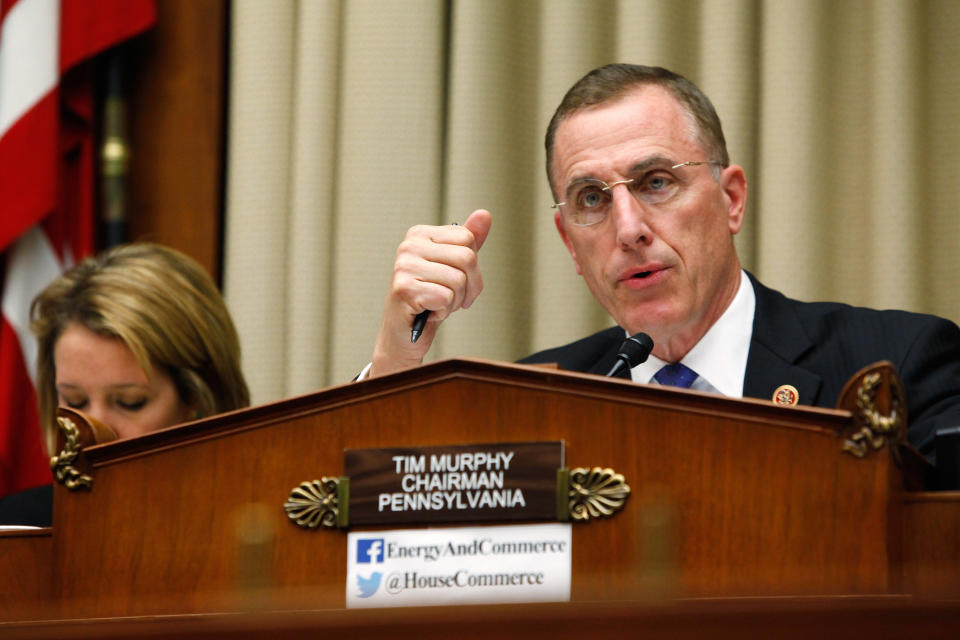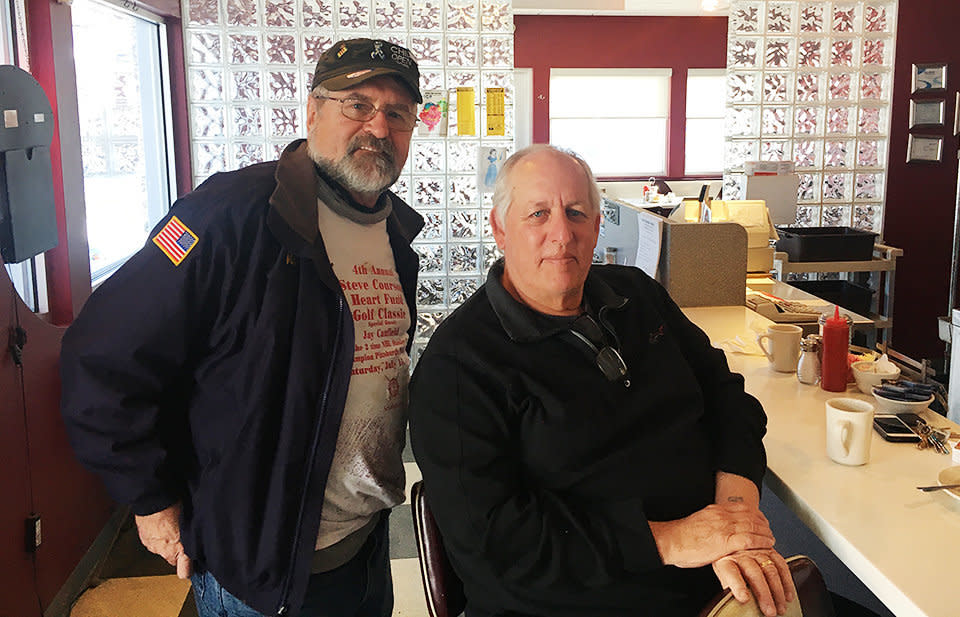House Democrats Just Had Their Best Ever January Fundraising Haul
The Democratic Congressional Campaign Committee announced Tuesday that it had raised $9.3 million last month, the largest ever January haul for the campaign arm of House Democrats.
Of that total, the DCCC raised $3.4 million online in average donations of $18, a figure that points to enthusiasm among grassroots activists in addition to well-heeled donors.
The January numbers reinforce early signs of Democratic excitement that bode well for the party’s performance in November’s midterm elections.
“Our long run of record-breaking fundraising has been fueled by an energized and motivated grassroots base that is working every day to take back the House,” Rep. Ben Ray Luján (D-N.M.), chairman of the DCCC, said in a statement. “The huge size of the House battlefield, combined with incredible candidate recruitment and candidate fundraising, is spreading vulnerable Republicans thin and forcing them to fight for every inch.”
The DCCC’s January fundraising total increases its cash on hand to $43.8 million, compared with $33.2 million it had at this time in 2016.
But the party has a tough task ahead if it hopes to flip the 24 GOP-held seats needed to take back the House of Representatives.
The DCCC, buoyed by voter discontent with President Donald Trump and a slew of Republican retirements, is casting a large net. The campaign arm announced earlier this month that it is investing in races in 101 GOP-held districts, including once-safe Republican areas like South Carolina’s 5th district.

For its part, the National Republican Congressional Committee, which works to elect House Republicans, raised record money in an off year in 2017. The total gave it $43.6 million in cash on hand as of the end of December, which at the time was more than the DCCC had.
But as Bloomberg reported, a sizable share of the NRCC’s donations came in the form of large checks not subject to the same contribution limits. These donations, which reach as high as $101,700 a piece, cannot be used toward federal elections. As a result, the NRCC had $20 million in cash that could not be used for electoral purposes.
Republicans still enjoy the support of super PACs and other outside groups that can fill gaps left by party fundraising. These outside groups potentially have the power to fundamentally alter the dynamics of key House races.
One such contest is the March 13 special election for Pennsylvania’s 18th congressional district, which Trump won by nearly 20 percentage points but where Democrats are putting up a serious fight. Democrat Conor Lamb has proven a more adept fundraiser than Republican Rick Saccone, but the latter has benefitted from the largesse of the Congressional Leadership Fund, a super PAC associated with House Speaker Paul Ryan (R-Wis.), and Ending Spending, another outside conservative group.
DCCC chairman Luján acknowledged this factor in his statement celebrating the January fundraising numbers.
“We’ll need every penny in the face of an unprecedented flood of outside Republican money, and there’s certainly more work to do,” Luján said.
Also on HuffPost
Conor Lamb Nomination

Saccone Greets Trump

Tim Murphy




"I just wanted to let you know: Get in there and get him out. Cuss if you don't do it. I'm coming down myself," Skowvron said. "The way Trump talks to people, the way he's treating the world ... He's ruining the country," Skowvron added.

Trump performed well in the area because young people supported him, according to Nakoneczny. "They're tired of all these promises," he said. "Everybody's promising 'em, nobody's ever doing nothing."
Nakoneczny continued: "As much as Trump sucks, he's telling you, 'I'm putting yinz first. I'm doing what you wanna do.' But he's not doing it the right way, ya know what I mean?"

"I'm like, 'You know what: Let somebody in who's been in business that seems to know what he's doing because he's not broke," she recalled. But Dhanse has heard that the GOP tax legislation is "not gonna really do much for the middle class."
"The people that make a million dollars, they should be able to give a little more to make businesses give raises. People can't live on $7.25 an hour," Dhanse added. "And the minimum wage hasn't changed for how long? Thirteen years or something like that."
![Wes Donahoe, 29, is a medical equipment repair specialist in Jeannette, Pennsylvania. He voted for Libertarian Gary Johnson in the 2016 election and didn't know enough about the special election candidates to decide how he would vote. But he is pretty satisfied with President Donald Trump, including the tax cut bill, which he believes will help him and most people in the middle class. <br /><br />At the same time, Donahoe said the corporate tax cuts will probably not prompt companies to create new jobs. "Just because a company is getting more tax breaks doesn't mean that there's more demand for [their] production or service or anything," he said.](https://s.yimg.com/ny/api/res/1.2/q0FW05TcR9jG8482WFiJGw--/YXBwaWQ9aGlnaGxhbmRlcjt3PTk2MA--/https://img.huffingtonpost.com/asset/5a6237291e000028005add63.jpeg)
At the same time, Donahoe said the corporate tax cuts will probably not prompt companies to create new jobs. "Just because a company is getting more tax breaks doesn't mean that there's more demand for [their] production or service or anything," he said.

Lintz, a lifelong Democrat, voted for Barack Obama but left the top of the ballot blank in 2016. He said he would have rather voted for Mickey Mouse than either Hillary Clinton or Donald Trump. "I don't think there is a party for working people any more," he said. "They're all the same. Call it Republicats and it would be right now."
Hearing Lintz opine at the McDonald's in Burgettstown, Pennsylvania, Don Dowler, 72, walked over. Dowler, a retired union member, voted for Donald Trump in 2016 and is inclined to vote Republican in the special election. But if Dowler heard the Republican candidate is anti-labor, he said, "That might affect me, yeah. It depends which way he goes."
Love HuffPost? Become a founding member of HuffPost Plus today.
This article originally appeared on HuffPost.

